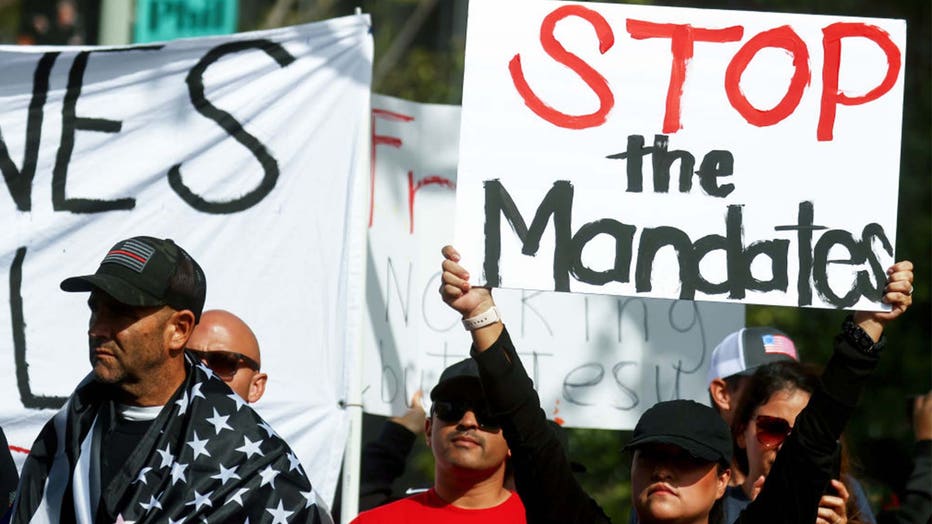Temporary hold on Biden’s COVID-19 vaccine mandate for big companies upheld by federal appeals court
The 5th Circuit Court of Appeals has upheld the decision to temporarily block the Biden administration’s mandate that companies with over 100 employees must be vaccinated by Jan. 4, according to a news release published by Utah’s attorney general.
Attorney General Sean D. Reyes of Utah, along with five other states, filed the action on Nov. 5, according to an earlier news release.
"While today’s victory is important, we look forward to furthering argument, litigation, and legislative action on all fronts to protect the constitutional liberties of our citizens," Reyes said.
"Because the petitions give cause to believe there are grave statutory and constitutional issues with the Mandate, the Mandate is hereby STAYED pending further action by this court," according to the court’s order.

FILE - Protestors gather at a March for Freedom rally demonstrating against COVID-19 vaccine mandate for city employees and contractors. (Mario Tama/Getty Images)
RELATED: Federal appeals court blocks Biden's vaccine mandate for big companies
Louisiana Attorney General Jeff Landry said the action stops President Joe Biden "from moving forward with his unlawful overreach."
"The president will not impose medical procedures on the American people without the checks and balances afforded by the constitution," Landry said in a statement.
At least 27 states filed lawsuits challenging the rule in several circuits, some of which were made more conservative by the judicial appointments of former Republican President Donald Trump.
RELATED: US mandates COVID-19 vaccines or tests for big companies by Jan. 4, 2022
The Biden administration has been encouraging widespread vaccinations as the quickest way to end the pandemic that has claimed more than 750,000 lives in the United States.
The administration says it is confident that the requirement, which includes penalties of nearly $14,000 per violation, will withstand legal challenges in part because its safety rules pre-empt state laws.
The Associated Press contributed to this report.


